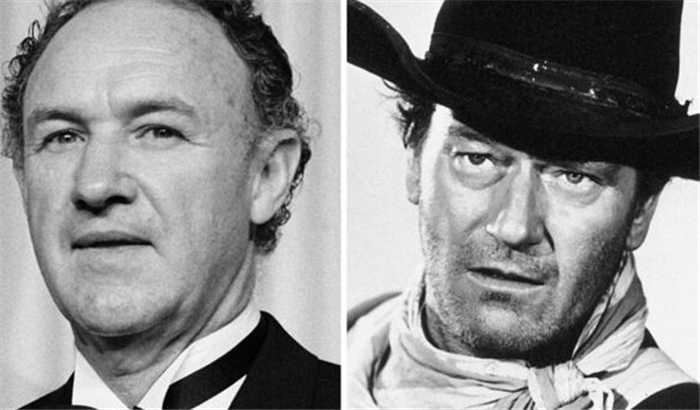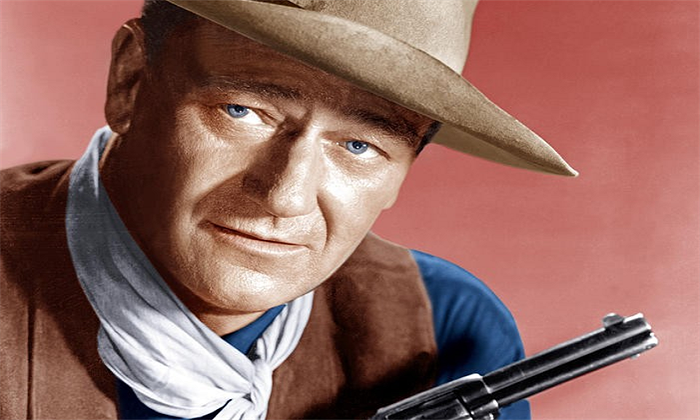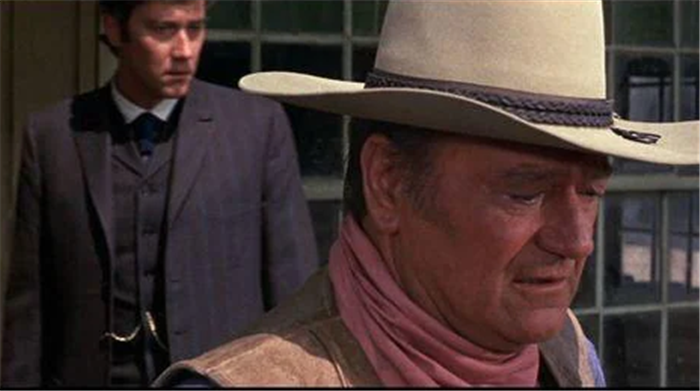John Wayne, the legendary western actor who has several films on BBC iPlayer including She Wore a Yellow Ribbon and Fort Apache, was notorious for his forthright views about a whole raft of topics and people. While he was often hailed by his contemporaries, Wayne, nicknamed Duke, was not afraid to pick a fight with those who he did not like, including Gene Hackman, the winner of two Oscars.
His hatred of Hackman, who starred in flicks such as The French Connection and Bonnie and Clyde, was retold in Wayne’s daughter’s book, 1991’s, John Wayne: My Father.
Aissa recalled how she only heard Wayne speak “once with any real venom… when it came to his contemporaries in film”, referring to Hackman.
She continued: “Gene Hackman could never appear on-screen without my father skewering his performance. I wish I could tell you why he so harshly criticized Hackman, but he never went into detail.
“Although it’s pure speculation, had my father lived to see more of his work, I think his view of Mr Hackman would have changed. Back then, however, my father called Hackman ‘the worst actor in town — he’s awful.’”
Though Hackman received perhaps Wayne’s most vicious retorts, another star was also brutally shut down. This time it was Gone with the Wind star Clark Gable.

Gable, who enjoyed an illustrious career before dying aged 59 as a result of a heart attack in 1960, was described by Wayne as an “idiot”. Aissa believed her father may have been upset with his Hollywood rival after he fell out with director John Ford, who collaborated with Duke on a number of projects.
She wrote: “My dad called Gable handsome but dumb at least four or five times, and now I wonder if it had something to do with my father’s friend, John Ford.
“During the filming of Mogambo, Ford and Gable had clashed again and again and the subsequent feud had simmered for years. In my father’s way of thinking, disloyalty to allies, support in any fashion for their enemies, was expressly forbidden.
If Clark Gable took on John Ford, my father’s code demanded that John Wayne stand by his old pal.”
He starred in a total of 179 films and television productions, and by 1970 had collected the Oscar gong he had so craved for his performance in True Grit.
He was so influential that the American Film Institute selected Wayne as one of the greatest male stars of classic American cinema, managing to make the move from film’s silent era into the ‘talkies’.
His temper, though, was not consigned to actors. During one television forum interview, he crossed paths with Professor Herman Finer, from the Univerity of Chicago, about the idea of what a hero was.
Wayne snapped: “We were talking about the picture and the definition of a hero… and this professor started right out twisting words around in my mouth, and he tried to say that all the good traditions were just legends.
And he said that he was afraid to let his wife and daughter go out on the streets of Chicago, and if he didn’t know that he had the Social Security thing, he wouldn’t know what he’d do.”
After lashing out, he then appeared to hold off. Yet, when the microphone was turned off he went back for the professor.
He said to him: “You miserable little so and so. The people who developed Chicago didn’t know whether they were going to be alive the next day, or whether their kids would be chopped up by Indians, or whether they could raise enough food and develop this place for you.
“And now you’re whining, sitting in your easy chair over at that university and teaching kids this philosophy?”

Another incident came on the set of his classic, The Alamo, a film that was beset with production issues, including a fallout between two of its stars.
The incident was described by Wayne’s third and final wife, Pilar Wayne, in her and Alex Thorleifson’s 1987 book, John Wayne: My Life With the Duke, where she claimed Richard Widmark was thrown against a wall.
She called Widmark, who was nominated for the Academy Award for Best Supporting Actor in 1946, a “difficult man” who had a “scratchy personality”.
With Wayne also directing the film, he became increasingly frustrated with his co-star. Pilar continued: “Duke tried patience and understanding first because he respected Widmark’s talent.
But Widmark seemed to interpret Duke’s patience as a sign of weakness. He kept on arguing with Duke in front of the rest of the cast and crew.”
She added: “Predictably, the day came when Duke’s patience ran out … Widmark and Duke had a violent confrontation and Duke threw the smaller man against a wall.”

Leave a Reply